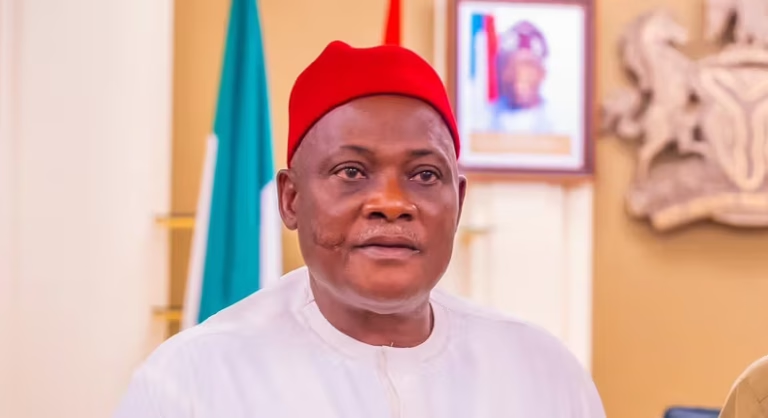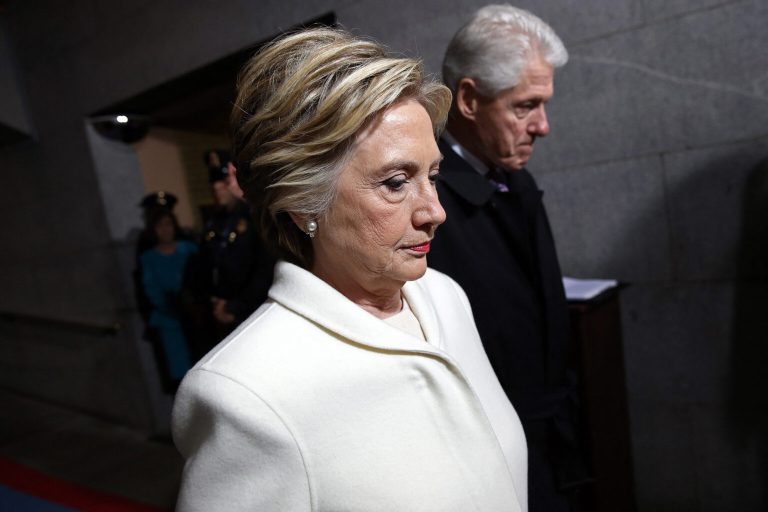
After the federal government announced a 50% reduction in interstate transport fares and free train rides between December 21 and January 4, many Nigerians were overjoyed. However, yesterday, those who flocked to the parks for the Yuletide holidays found that their destination still cost more.
The presidency on Wednesday disclosed the companies that will be taking part in the 50% reduction of inter-state transport fares authorised by President Bola Tinubu starting from yesterday (December 21) as part of the administration’s efforts to address the high cost of living in the nation, particularly during the Yuletide. This was reported by The Guardian.
As a result of the elimination of fuel subsidies in a nation where the majority of people use road transportation.
The five participating transport companies in the scheme are GIG (God is Good), Chisco Transport, Young Shall Grow, God Bless Ezenwata, and Area Motor, according to Special Advisor to the President on Information and Strategy, Bayo Onanuga.
Also, a document outlining the 28 routes the buses will travel was posted by the presidency. Lagos-Jos, Lagos-Enugu, Lagos-Onitsha, Lagos-Owerri, Lagos-Aba, Lagos-Abakaliki, Lagos-Nsukka, Lagos-Uyo, Lagos-Port-Harcourt, Onitsha-Kano, and Onitsha-Lagos are among them.
There are other ones as well: PH-Owerri-Aba-Kano, Aba-Owerri-Abuja, Aba-Lagos, Abuja-Sokoto, Abuja – Lagos, Abuja-Onitsha-Owerri-Port-Harcourt, Abuja-Enugu-Abakaliki, Abuja-Gombe, and Abuja-Kano.
However, investigations conducted by our correspondents yesterday showed that the 50% has not yet taken off. Onitsha was still being charged N50,500 by GIG, N48,000 by GUO Transport, N49,000 by Chisco Transport, and N32,000 by Ifesinachi Transport yesterday.
Onitsha.
An employee of Chisco Transport said that they were invited to a meeting where the price slash was discussed but they were yet to receive any financial help from the government in that regard.
He said: “We attended the meeting, but we are yet to receive anything from the government to show their seriousness, so we are still collecting the full price till fu rther notice.”
He added: “We are yet to get any go ahead from the management and more so, the people who used our buses today are those who have booked and paid many days ago.”
A cashier in GIG said the half price slash only took effect in their Lagos Ajah park.
An infuriated staff of Ifesinachi Transport asked if the federal government has availed subsidised fuel or maintenance cost to demand rebate fares in return.
He said: “Why are they talking about slashing prices when they have not extended any financial help to us? If they are serious, they should bring down the price of fuel and see how flat the price will fall.”
One passenger at GUO motors, Mrs Oby Umenwa, stated notwithstanding the cheering news, she was prepared to pay the full fare as she didn’t trust the government.
A GIG passenger, Fatai Balogun, wondered why the people took the Nigerian government seriously. He said: “I am going to Onitsha to buy my goods. I have paid for my transport fare and that’s all. I didn’t see the government before making the preparations and I am not hoping for anything. In fact, I am surprised that people still take the Nigerian government seriously.”
Also, GIG, which is one of the transport firms selected for the scheme, is yet to reduce the price for online booking on their official website. The fares for inter-states journeys were still higher than what was paid for similar trips a few weeks ago.
For instance, Abuja to Lagos, which was about N25,000 a few weeks ago, was pegged at N52,000 yesterday. The fare for a journey from Lagos to Imo State was also pegged at N42,300 by the same firm on its official website. The company also fixed N45,000 as the fare for a trip from Lagos to Rivers State.
GIG via its X page explained that the only terminals they had started the initiative were Jibowu and Ajah in Lagos, revealing that “other terminals would be announced in the coming days.”
There was no word from the four other firms in the initiative as compliance checks one Chisco Transport, Young Shall Grow, God Bless Ezenwata and Area Motor were hampered by their poor online presence. For instance, Chisco Transport’s online booking site only accommodates trips from Lagos to neighbouring West African countries such as Ghana and Togo.
Similarly, the Nigerian Railway Corporation (NRC), government-owned agency mandated by the presidency to provide free train rides for the next two weeks beginning from yesterday, has also lamented the slash of transport fare by the federal government, as the corporation stated that it was yet to recover from previous transportation waivers by government.
Managing Director of NRC, Fidet Okhiria, despite commending the development, expressed concerns over the cost of the intervention scheme and hoped the government could defray the cost.
“This is not the first time. We did this two years ago. It was effective. I say we’ve yet to recover from that. But what is the government for? The government is to make sure that people have as much comfort as possible,” he said yesterday on Channels Television.
“And we are quite willing and wishing to provide that service. You know, don’t forget that in other developed countries, they get this thing either directly or indirectly. You recall during the COVID-19 pandemic, even private companies were given relief, and those without jobs like in the UK, U.S., and everywhere…So it’s a good thing that the government considers we should do a free service, but they should also be willing to provide the resources to do it.
“We are hoping this time they are going to give us fuel for those 15 days we are going to provide the free service. They are also willing to provide at least the money we pay to the cleaners and the security,” the NRC boss said.
The Lagos Chamber of Commerce and Industry (LCCI), has urged government to ensure proper planning and coordination of the reduced and free transport initiative to safeguard transporters involved so they do not eventually run at a loss.
Director-General, LCCI, Dr Chinyere Almona, said implementing a significant reduction in bus fares and providing free train rides during this season, requires meticulous planning and coordination and any logistical challenges in managing the increased volume of travelers would impact the effectiveness of the initiative.
She added that the 50 per cent cost reduction for buses and free train rides may have financial implications for transport operators and it is essential to ensure that the initiative is economically viable for both parties. “Clear communication about the initiative should be disseminated widely to and sensitise the public. Lack of awareness or understanding among the public could lead to confusion or dissatisfaction,” she said.
“While the initiative has the good intention of easing economic burdens, careful planning, communication, and consideration of potential challenges are vital to its success and positive impact on the intended beneficiaries. LCCI calls on all levels of Government, Federal, State, and Local, to contribute with more vigor to more sustainable solutions, including gas-fired and electric vehicles.’
Applauding the initiative, Almona said it demonstrates a commendable commitment to addressing the challenges faced by the business community and the general populace during these trying times. “The reduction of transportation costs along the 22 interstate routes and the provision of free train services during this period will ease the financial burden on Nigerians and encourage intra-country travel. Also, the assurance of safety measures during this period as articulated by the government, further underscores its commitment to the well-being of citizens.”
Adding that the business community will also benefit significantly from this intervention, she said lower transport costs translate to reduced operational expenses for businesses engaged in interstate commerce, thereby contributing to improved profitability and economic growth.
Following complaints by travellers over the continuous hike in airfare, the Federal Competition and Consumer Protection Commission (FCCPC) has commenced an investigation to unravel the circumstances surrounding the development.
Babatunde Irukera, the Executive Vice Chairman of the commission, disclosed this yesterday during a press conference in Abuja.
The FCCPC boss, who narrated several achievements of the commission since its inception, lamented that there are difficulties in determining price hikes, particularly regarding airfare.
He said: “There is a provision in the law against price gouging. Nigeria is a free economy. The best price, and a constitutionally legitimate adopted price for anything, is negotiated between a buyer and a seller in a free market.
“Airfare remains the most complex area for this. For instance, it is possible to travel the shortest distance and even pay more. Someone sitting beside you may even pay something different.”
Irukera also told journalists that the agency lacks the constitutional power to impose prices on goods and services, saying Nigeria has a free market where the seller and the buyer determine costs.
“Do we as regulators have the power to impose prices in a free market? No. We don’t. So, the way to determine excessive pricing is through investigation.
“How do you determine that the price is excessive? It is not just about looking at the number because the input can make a difference, and we are dealing with that.
“I can tell you that it’s all competition issues. For instance, if you are travelling from Abuja to Lagos for N135,000, Lagos to Uyo can cost you twice the amount because there is no competition there.
“Lack of competition always raises prices high. You can imagine how complex the investigation into airfare is. There are many things to look at when investigating a hike in airfare.”
He said that although the commission also believes that the airfare is too high, it can only take necessary actions after investigation.
“We also believe that the airfare is too high, but it would be an abuse of the office for regulators to take certain actions just because you feel the prices are high. We aim at establishing evidence and confronting the body, but that is hard work,” he added.
Meanwhile, the federal government yesterday gave its criteria for choosing the participating transport companies saying that the five companies were selected because they already have a track records of moving people from one part of the country to another in a safe and secured manner, while government targets to lift five million commuters during the Yuletide season with the 50 per cent transportation rebate.
The Minister of Information and National Orientation, Mohammed Idris, who stated this at the end-of-year press conference in Abuja, explained that the government is not desirous of doing business as usual adding that it wants to ensure that only those who are involved in the business are patronised.
The minister, who confirmed that the N35,000 wage award for federal civil servants has not stopped, noted that President Tinubu will live up to expectations and every penny he promised will be given to Nigerians.
“Workers have been told that they will get N35,000 wage award, sometimes, the Federal Ministry of Finance may have operational bottlenecks that may delay the disbursement of these funds but they are actually working on it and every Federal worker that is entitled to it will surely get the money.”
The minister announced that the federal government is working on a new minimum wage for workers, which will come into effect next year adding that by January 2024, the government will be rolling out the new Federal student loan program that was announced a few months ago.
According to him, the government is finalising the process for payment of a cash transfer of N25,000 monthly to 15 million of the poorest and most vulnerable households in Nigeria, for three months while there is a presidential directive for the release of 200,000 metric tonnes of grains from strategic reserves to households across the 36 states and FCT to moderate prices, and 225,000 metric tonnes of fertilizer, seedlings and other inputs to farmers.








